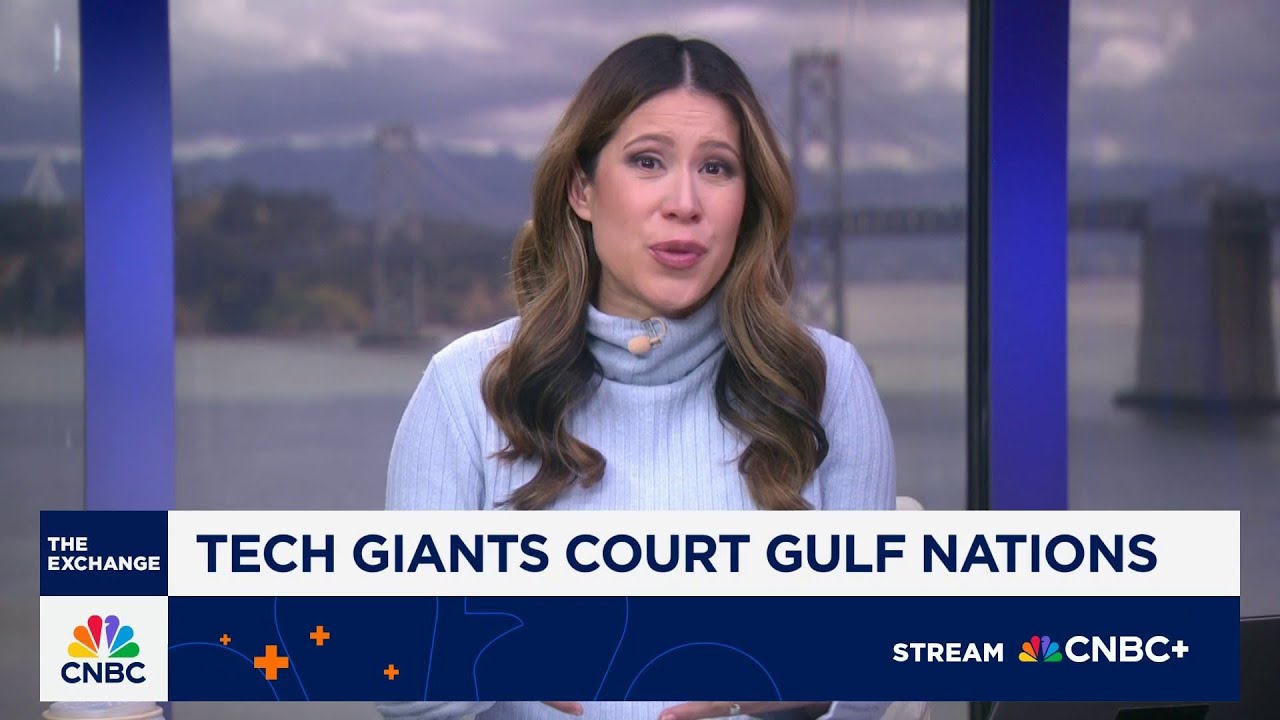The video explains how the Middle East is emerging as a new key player in AI chip diplomacy, leveraging its resources and strategic location to attract major tech investments and shape the future of AI development. It also highlights the geopolitical tensions surrounding U.S. export restrictions, which influence the region’s access to advanced chips and impact global technological and strategic dynamics.
The video discusses the shifting landscape of global chip diplomacy, highlighting the Middle East’s emerging role as a key player in the AI chip race. While China has traditionally been a major focus in this arena, recent developments indicate that Middle Eastern countries are now becoming central to the strategic competition. This week’s investor conference in the Gulf region is expected to attract prominent tech figures like Elon Musk and Jensen Huang, aiming to secure multibillion-dollar deals and partnerships that could position the Middle East as a new hub for AI infrastructure and innovation.
The region’s interest in acquiring advanced AI chips is driven by its desire to replace China as the primary buyer and to leverage its sovereign wealth, energy resources, and strategic location. Countries like Saudi Arabia and the UAE are eager to participate in the global AI power race, which is seen as crucial for economic diversification and technological leadership. This influx of investment and interest could give the Middle East a significant advantage in shaping the future of AI development and deployment, making chip diplomacy a vital aspect of their geopolitical strategy.
However, this pursuit of AI chips is complicated by geopolitical considerations and U.S. policy restrictions. The Biden administration previously implemented the AI diffusion rule, which limited exports of advanced U.S. chips to certain countries based on their alliances and ties to China. This rule aimed to prevent autocratic regimes from gaining too much influence over AI infrastructure. The potential loosening or replacement of these controls, possibly on a country-by-country basis, could open the door for Middle Eastern nations to acquire more chips, but it also raises concerns about strategic risks and the proliferation of AI technology outside U.S. influence.
The discussion also touches on the broader implications of these developments, including the balance between short-term economic deals and long-term strategic security. Some experts argue that easing export controls might lead to increased AI diffusion to regimes with questionable ties, potentially undermining U.S. technological dominance and geopolitical interests. The Middle East’s neutral stance, exemplified by Dubai’s attempts to maintain partnerships with multiple nations, adds complexity to the situation, as opening up to one country could inadvertently strengthen China or other adversaries.
In conclusion, chip diplomacy is becoming a new form of geopolitical leverage, with the Middle East positioning itself as a key player in the AI race. The region’s pursuit of advanced chips and partnerships reflects a broader strategic effort to gain technological and economic influence. Meanwhile, U.S. policies and regulations are at a crossroads, balancing the desire to promote innovation with the need to safeguard national security. The outcome of these negotiations and policy shifts will significantly shape the future landscape of global AI development and international relations.
